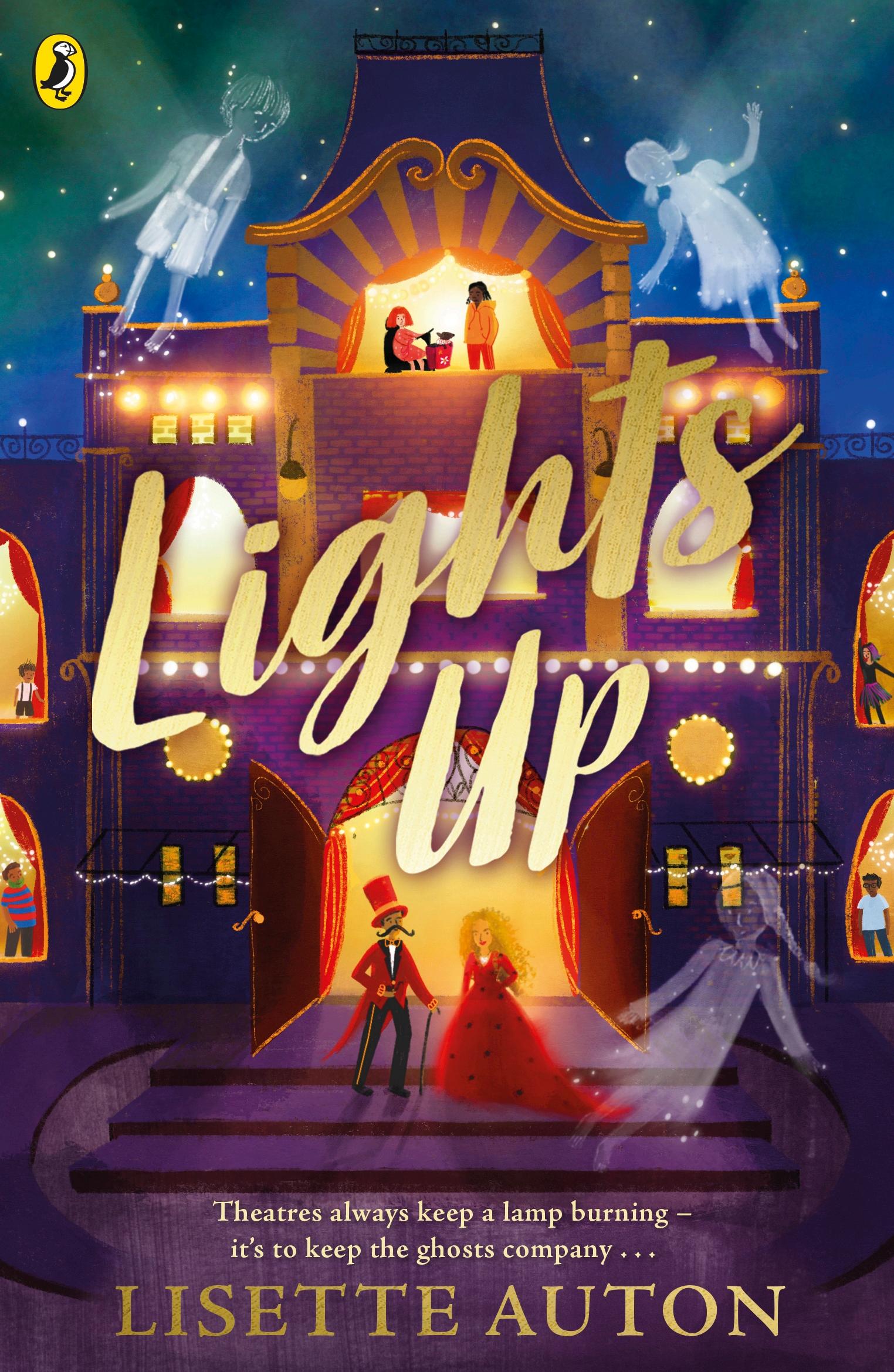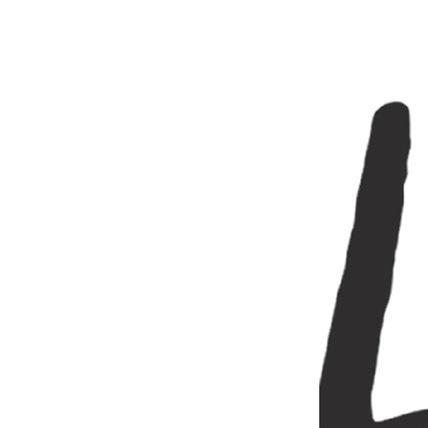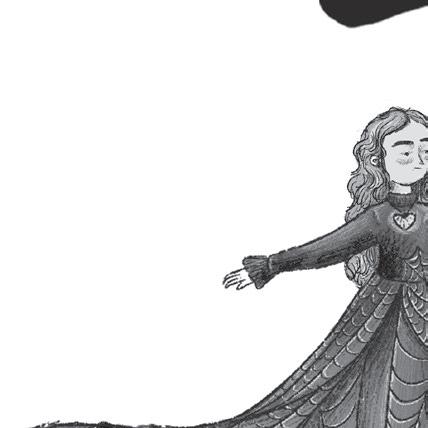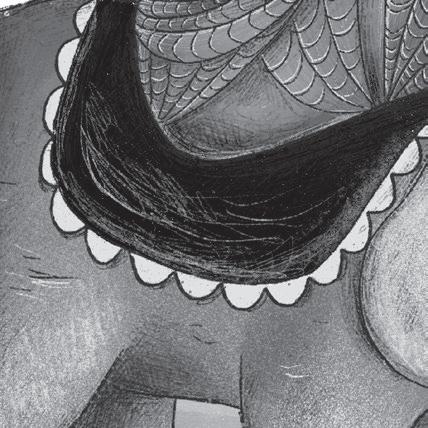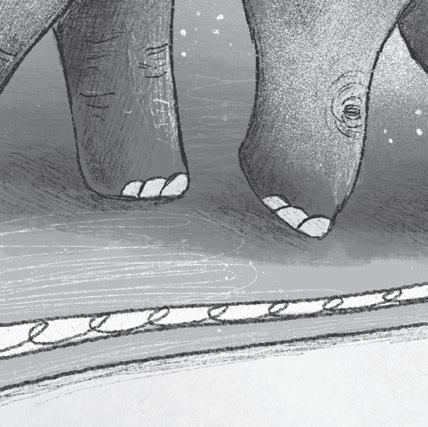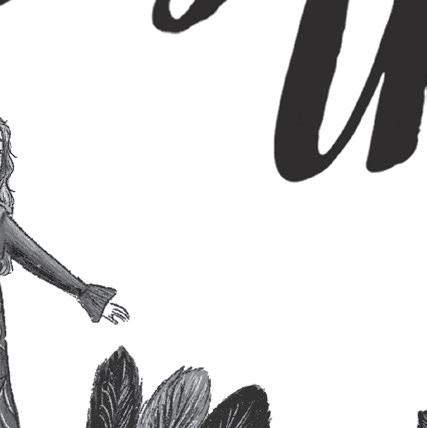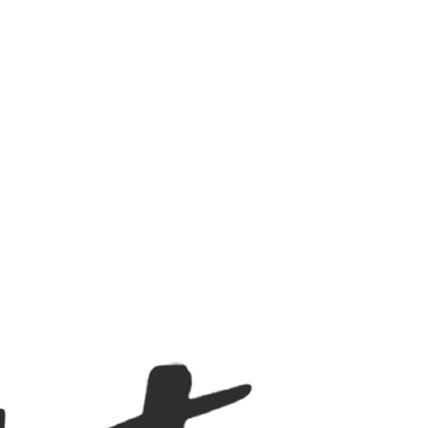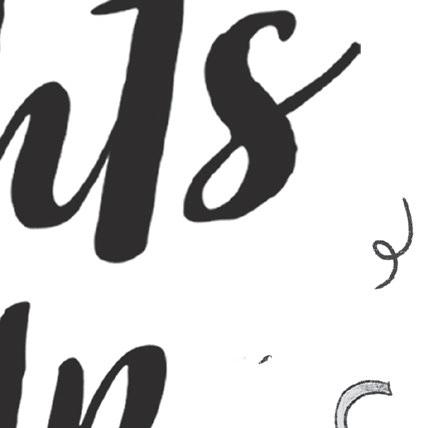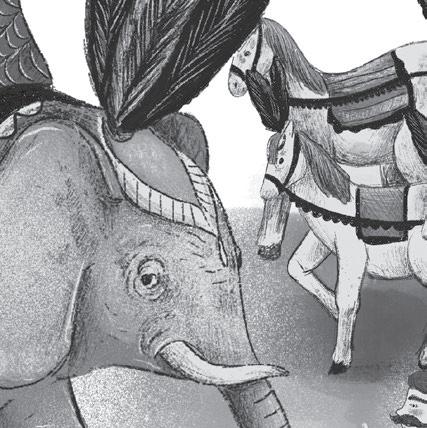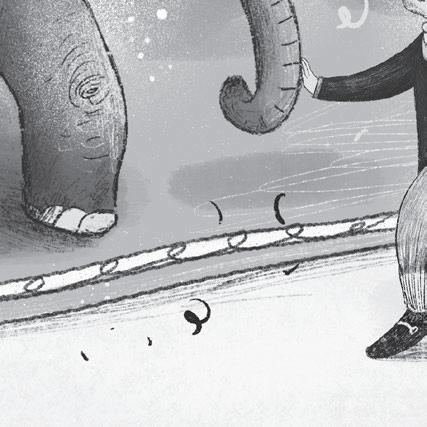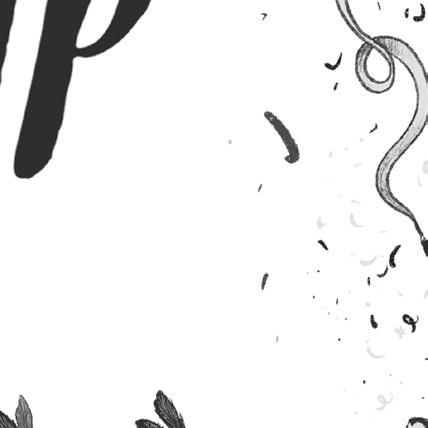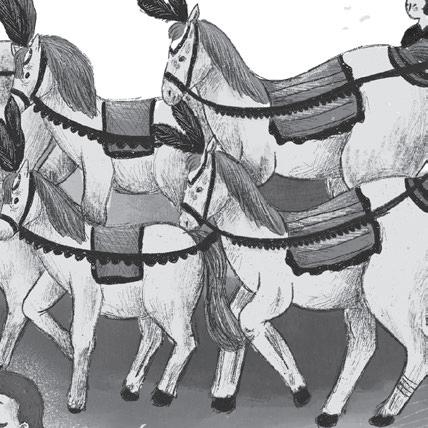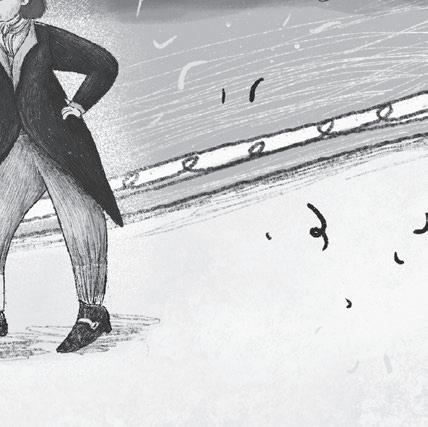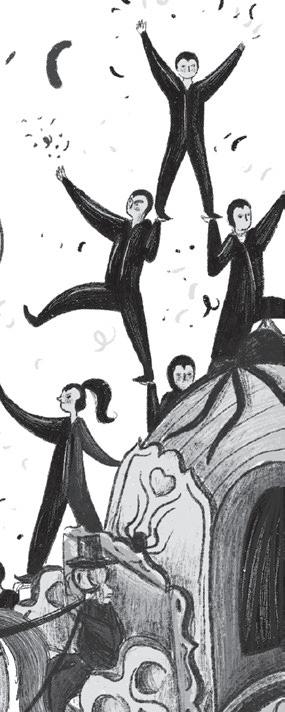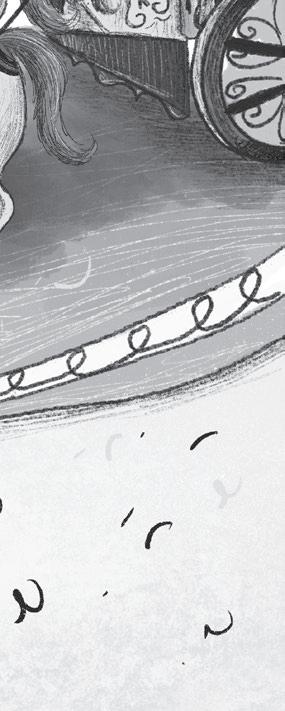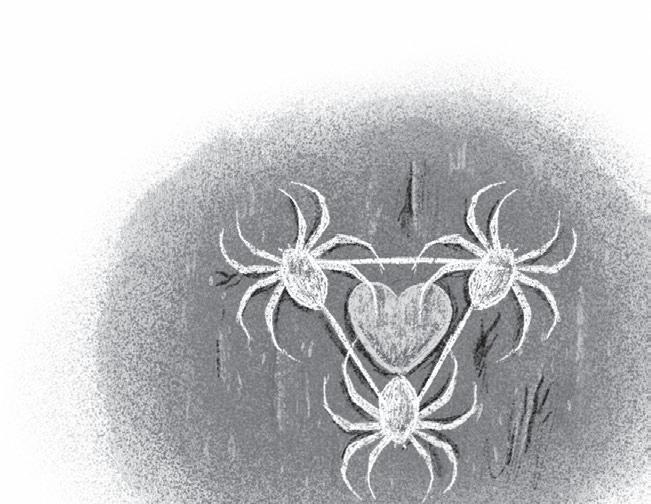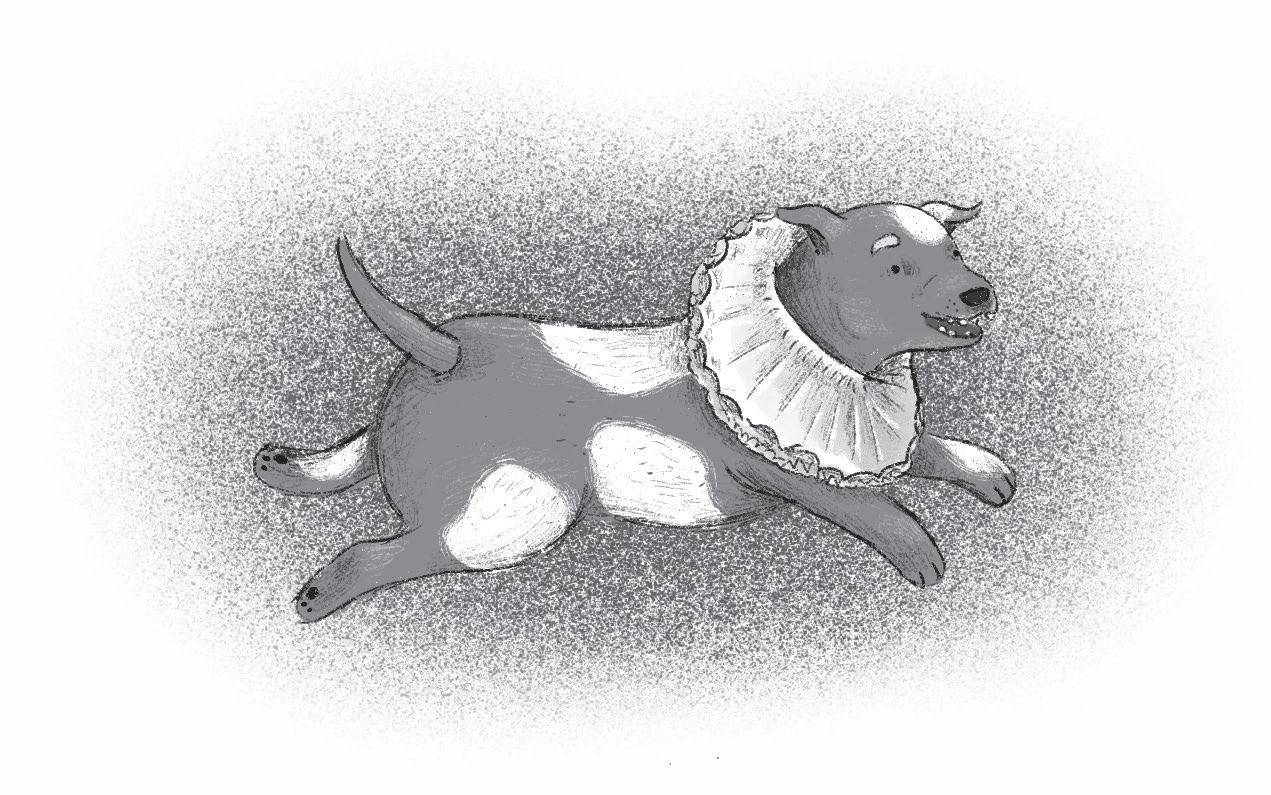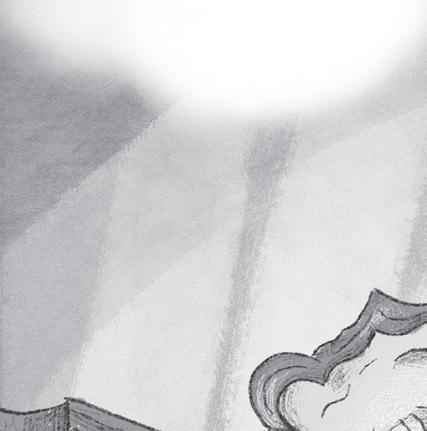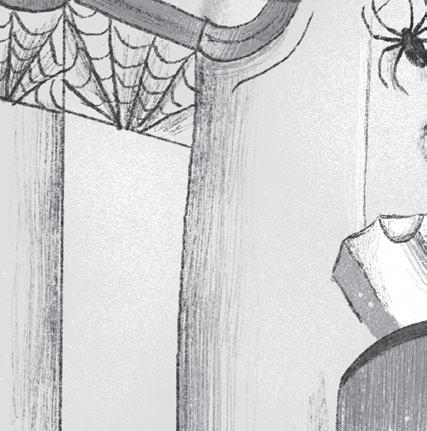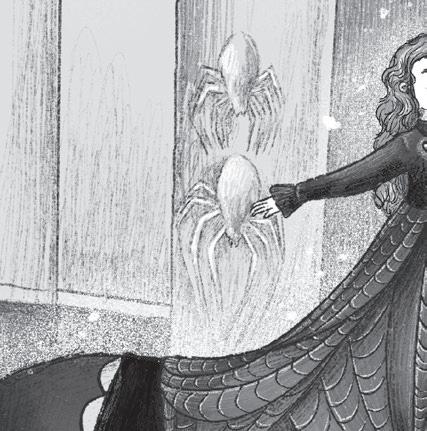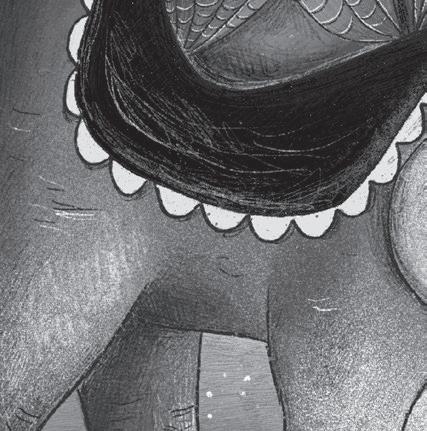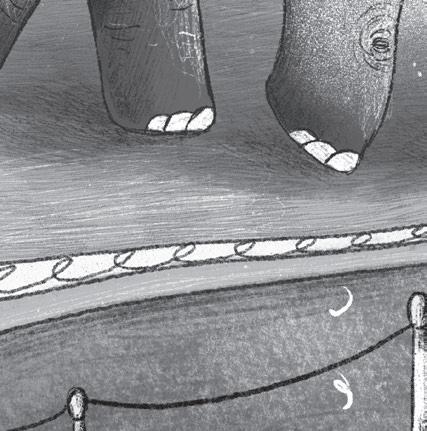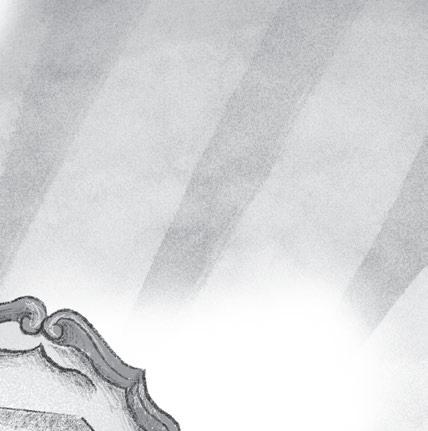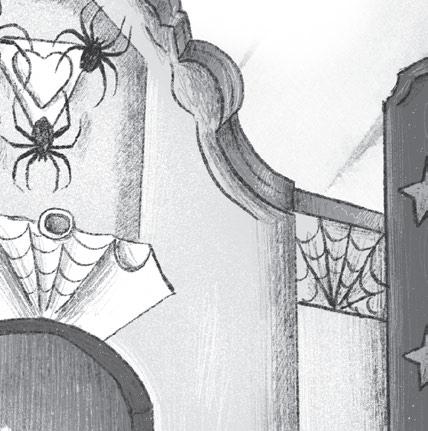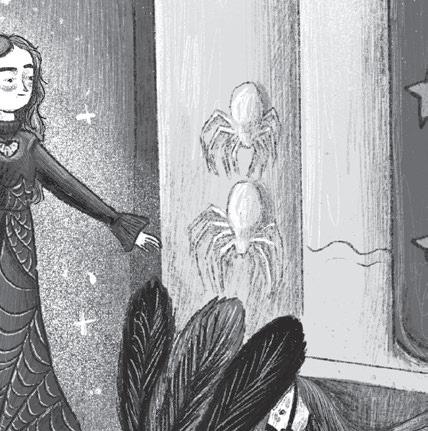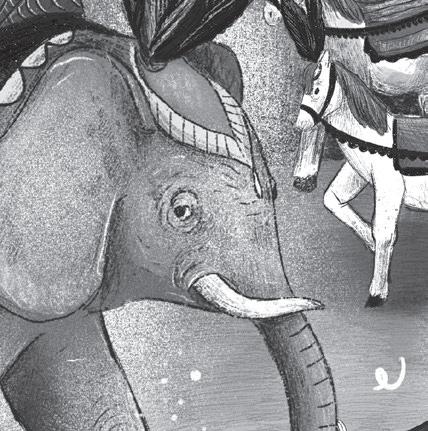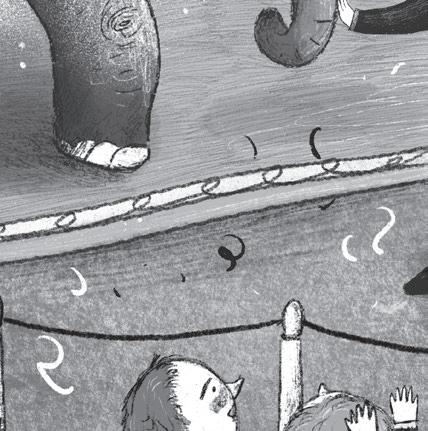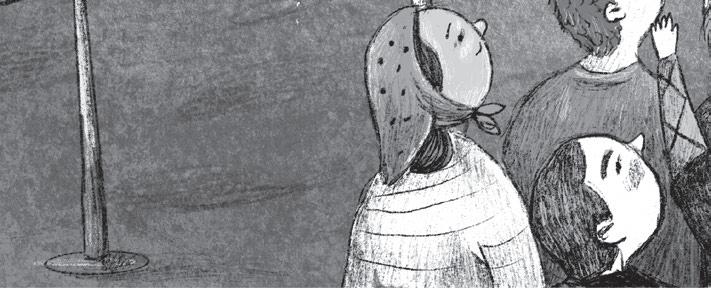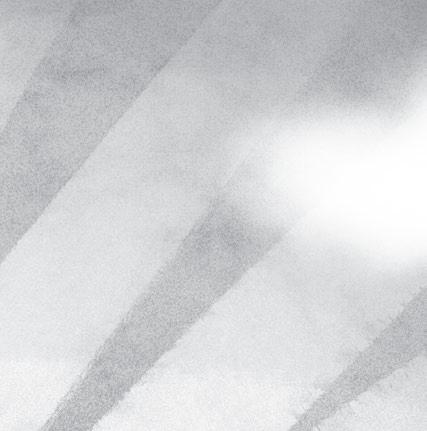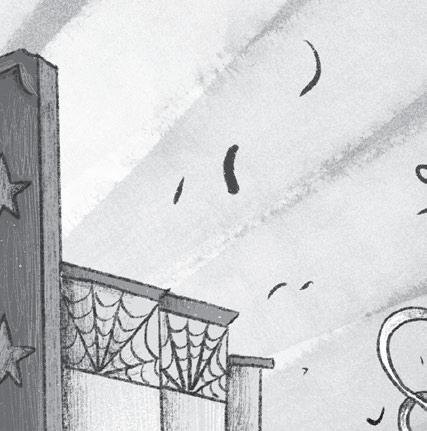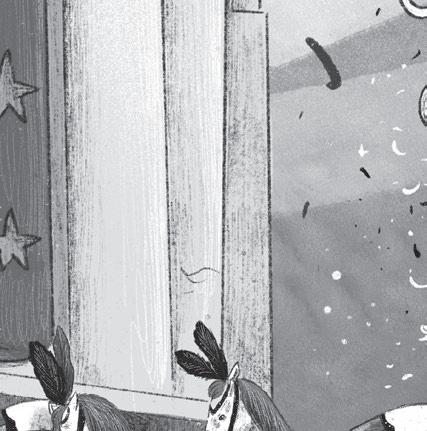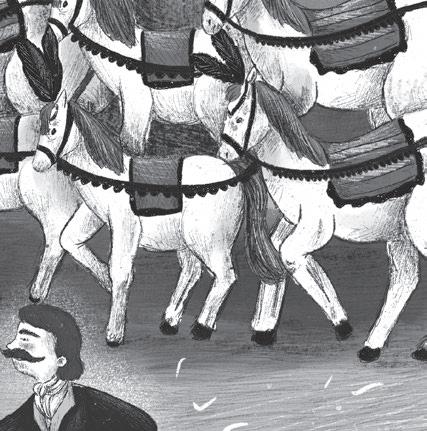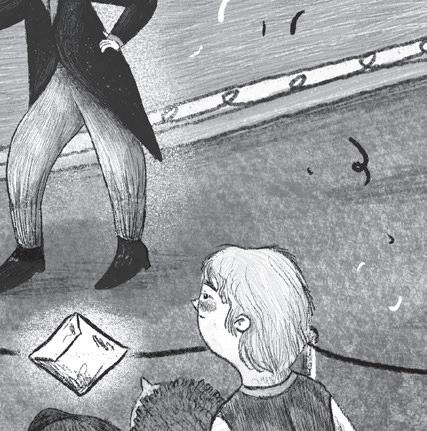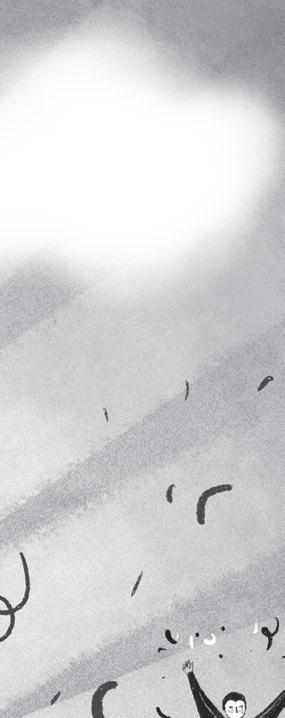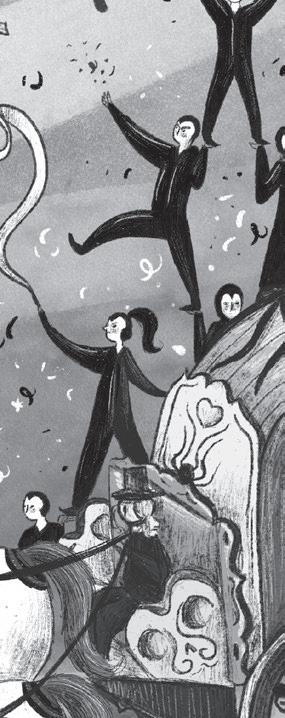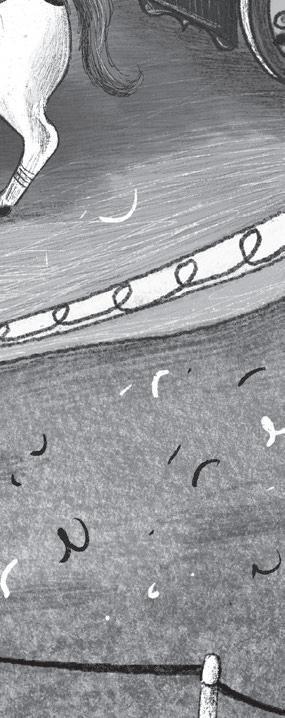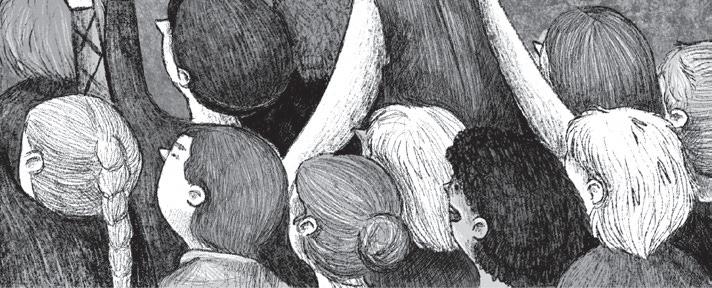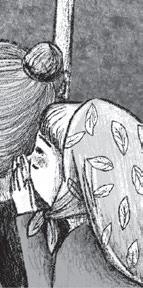LISETTE AUTON
Illustrated by Valentina Toro
PUFFIN BOOKS
UK | USA | Canada | Ireland | Australia
India | New Zealand | South Africa
Puffin Books is part of the Penguin Random House group of companies whose addresses can be found at global.penguinrandomhouse.com
www.penguin.co.uk www.puffin.co.uk www.ladybird.co.uk
First published 2024
Text copyright © Lisette Auton, 2024
Cover illustrations copyright © Gillian Eilidh O’Mara, 2024
Interior illustrations copyright © Valentina Toro, 2024
The moral right of the author and illustrators has been asserted
Set in 12.5/17.5pt Bembo Book MT Std Typeset by Jouve (UK), Milton Keynes
Printed and bound in Great Britain by Clays Ltd, Elcograf S.p.A.
The authorized representative in the EEA is Penguin Random House Ireland, Morrison Chambers, 32 Nassau Street, Dublin D 02 Y h 68
A CIP catalogue record for this book is available from the British Library
isbn : 978–0–241–63765–4
All correspondence to: Puffin Books
Penguin Random House Children’s One Embassy Gardens, 8 Viaduct Gardens, London s W 11 7b W
Penguin Random Hous e is committed to a sustainable future for our business, our readers and our planet. is book is made from Forest Stewardship Council® certified paper.
This book is dedicated to Harper Lee, rescue dog and my beloved editor-in-chief.
And to all the Very Good Dogs: those still with us, and those playing for all eternity at the farm in the sky – especially Milly, Drummer, Ralph, Django, Woody, Aldo, Captain Pugwash, Fraggle, Barney, Maizie, Nyssa, Romana, Ren, Jake, Daisy and Rex.
Chapter One
Way Back When,
‘Some villages have a beautiful waterfall, wild ponies in meadows, and what do we have?’ Araine Redwood asked her little sister.
‘Spiders,’ replied Nora. ‘Urgh, why does it have to be spiders? I think we got the worst option. The last one left!’
‘Exactly,’ agreed Araine.
‘Girls!’ said their mam. ‘They’ve been here since the world was born, weaving their webs under our village, keeping us safe, linking us from this world to the next by invisible strands. Turning dew into diamonds,’ she added, trying to get them both tucked up on the straw mattress they shared in the eaves of their cottage’s little attic, at the other end of the room to their parents’ bed.
A chicken settled next to Nora and she patted its head absent-mindedly.
‘Nonsense – we’d know about that if it was true! That’s even worse than some of Nora’s fibs,’ said Araine. ‘You do tell some whoppers.’
‘I do not!’ Nora tugged her big sister’s long curly blonde hair and stuck her tongue out. She scooched down to the end of the bed, so that Araine couldn’t reach to tug her pigtails in return. ‘Anyway,’ she retorted, ‘if there really were dew diamonds, then Dad wouldn’t have to work so hard for Lord Machiavelli.’
There was a heavy pause as they tried not to think about their father curled up downstairs, unable to climb the ladder to the loft any more.
‘Mam, is it true that the spiders let folk say goodbye?’ asked Araine, trying to change the subject when she saw her sister’s face crumpling. But then asking about saying goodbye to dead people probably wasn’t the best idea. Luckily, Nora didn’t seem to notice – she was too excited and bouncy.
‘Can the spiders really do that? Tell us the story, Mam!’
Mam glanced at the spiders in the corner of the room, watching them, keeping them safe. ‘You’ll know the answer to that when your time comes and you need
them. Just make sure there’s three of you together. Now, hop into bed!’
‘Oh, Mam!’ whined Nora.
‘You’ll not be able to get up in the morning otherwise, and none of us wants to live with Madam Grumpy.’
‘Aye, Nora,’ said Araine with glee, siding with her mam.
‘Me? Araine, you’re the worst!’
Araine could see that Nora was on the verge of tears. She couldn’t bear her sister being upset, and knew she loved the tales about their mam once saving the spiders so they were now in her debt, and had promised they’d always look after her two daughters in return.
She looked at Mam. ‘Tell us about the spiders’ diamond that lets you say goodbye to the dead!’
The spiders all scuttled over and sat by Mam’s feet. One harvestman spider with spindly legs and a body like a seed even settled itself on her foot. The spiders loved their mam and this story, just as much as the sisters did.
Nora curled up in bed, watching a tiny money spider beginning to weave a web above her.
‘Tell us! Tell us! Tell us!’ yelled the sisters between giggles as their mam began to recount the tale of Attercop, their village. It was said that the spiders lived
beneath Attercop. They had a precious diamond made from dewdrops, the spiders’ heart, which could link with the villagers for a brief moment, allowing them to say goodbye to their loved ones before they departed for the next world. The spiders’ web filled a cavernous catacomb, weaving out from below the church and reaching to the very edges of the village, keeping all those above it safe.
‘The diamond only works with three, just like the points of the triangle carved above the church door. Three people who have loved and lost – they can hold the spiders’ heart to say their last goodbye, to know that their loved ones are safe on their final journey.’
The sisters drifted off to sleep as their mam’s familiar words soothed and lulled them.
Araine rolled over, whimpering, as her dream shot her into a memory of her little sister watching the performance tent being set up. Nora was as excited as the troupe of actors, who’d just arrived in Attercop. It was a blue-sky day and Araine and Nora, in their matching dresses, were sitting next to each other on a hay bale with their best friend, Lucie Lightfoot. They laughed and pointed as some of the players acted out stories while others did somersaults and danced.
The blue faded to grey and Araine moaned in her sleep, pulling her blanket further round herself, desperately trying to keep warm. In her dream, the grey sky transformed into the grey of their dad’s skin. And when she ran towards him, dream-running slow, when she finally hugged him, instead of strong muscles, he felt like a twig and she had to be careful not to snap him.
Araine’s eyes flew open as she called out for her father. The space beside her was empty – where was Nora? She was nowhere to be seen. And this wasn’t their blanket.
Araine sat up in fright, bringing her knees towards her and flinging off the blanket of cobwebs that she’d pulled about herself to keep warm. Looking around, she realized she was in the village bakery, not her bedroom. Then she saw the spiders in the corner, all standing guard, and she screamed.
The panic lasted for just a moment. ‘Calm yourself, Araine,’ she muttered, trying to get her breathing under control. Mam would tell her off for upsetting the spiders.
They had obviously kept their promise to her mam: they were the ones who had got Araine through the night, their web keeping her warm. Araine hadn’t always known what was real and what was story when Mam
told her the tales about the spiders, but maybe her mother had been telling the truth . . . Mam . . . Everything came flooding back to her, and Araine dissolved into sobs that she thought would break her heart in two. Her dying dad had been working long hours in the fields, even though he could barely stand, because Lord Machiavelli did not like anything to fall behind schedule.
The thought of evil Lord Machiavelli was like poison in Araine’s heart; it brought out all the bad bits in her, like when she was mean to her sister if she didn’t want to share or was being annoying. Araine knew that everyone had some nasty bits inside, but that could be forgiven if you said sorry and walked into kindness. That’s what her mam said. Whatever that meant.
But Araine couldn’t forgive Lord Machiavelli. Not ever. She tried to shut out her thoughts of revenge, like putting a broom between the spokes of his carriage’s wheels so it would overturn when he was inside. No!
She was doing it again!
‘Stop thinking about him!’ she scolded herself. And yet there he was. In her mind, playing over and over again, was a conversation between him and her dad, which she’d watched while hiding behind a barn.
That had been the beginning of the end.
‘What would the world be like if we all stopped working?’ Lord Machiavelli had said pompously to her father.
His Lordship was dressed in silks and velvet. He was plump with rich food and was sitting on a horse he could barely ride – a horse that was worth more than their cottage and all the houses in the village put together, their homes that they lived in and paid for with their service. Araine had watched as her dad had tried to pick up the scythe, but it was too heavy for him, and he stumbled and fell. Their giant of a dad, now withered and broken.
‘Back to work – stop wasting time!’ Lord Machiavelli had yelled at the villagers who were trying to help her father. She’d have run to him too if Nora hadn’t appeared at that moment and tugged her away.
That was the night the villagers carried Araine and Nora’s dad back to their cottage and Mam made a bed for him downstairs by the fire, instead of him climbing the ladder to where they all slept with the chickens.
He didn’t get up again.
‘You’re the elder sister,’ he’d said to Araine.
‘Only by thirteen months,’ she’d said sulkily, suspecting that she was going to be asked to do something she didn’t want to do.
Her dad had ruffled her hair. ‘That makes all the difference: you’re ten and Nora is only nine. It’s your job, as the eldest and strongest, to always keep her safe.’
Araine had felt really grown up when he said that. She was so much older than her sister, and she promised her father she’d take care of Nora.
But now look at me, she thought. She couldn’t even do that right.
‘There’s still a chance for her,’ Araine told herself. ‘Don’t give up.’
However, she couldn’t forget the image of Nora asleep yesterday, before Araine had left her, not waking despite Araine’s efforts. And her little sister’s fingers, blue and freezing cold.
Not long after their dad’s death, fever had struck the village, and Lord Machiavelli had escaped in a convoy of snorting and galloping horses and carriages, leaving the villagers to either starve or catch the illness that poisoned the air.
First the fever took their mam. In a daze, Araine and Nora had buried her in their garden and placed her favourite lavender on top of the mound of earth. Then they went inside the cottage and barred the doors. When Nora became sickly and pale, when the breath began to catch in her chest, Araine knew the sickness had found her too.
‘No! I can’t think like that. I just need to get back to her and everything will be all right,’ Araine said to herself, and gave her head a little shake to try to get rid of the thought. But it was a very gnarly one and wouldn’t let go of her heart.
Surely Nora would be all right? She had to be. Araine had promised her father!
But they had desperately needed food. If she was too weak to look after Nora, what would become of them? So, yesterday, Araine had made the difficult decision to leave her little sister and had hurried across the bridge over the river dividing Attercop from the town of Cawlington, all set to barter anything she had for food. What if the baker had no bread? Should she steal some flour?
When she’d got to Cawlington, she didn’t have to worry whether thieving was a bad thing or not, because there was nothing to take: the place was deserted. The streets were usually bustling, full of people yelling and selling things, pickpockets, people getting in the way, stray dogs and children begging for food, especially on the corner by the Travelling Duck pub where she’d sit outside when her dad had business in town.
But there was no one.
The silence was so unexpected that Araine had had to stop for a moment and wiggle her fingers in her ears to make sure they weren’t playing tricks on her.
Everyone had fled, and she couldn’t find a single scrap of food. The bakery had been ransacked: bare shelves, a cold oven and empty flour sacks by the door.
As she’d been sitting on the pavement outside the bakery, trying to decide what to do next, the sky had suddenly darkened and a warm wind picked up, then thunder crashed in the distance. By the time Araine spotted where the storm was coming from, the sky had split open and huge drops of rain had begun to fall. Within seconds, horizontal rain was lashing and it soaked her to the bone before she’d had the chance to find shelter in the bakery, leaving her shivering.
When rain like this came down, the river swelled and the bridge linking Cawlington and Attercop was too dangerous to cross. Araine was trapped. She kicked out in anger. She’d have to leave Nora all alone in their cottage until the rain stopped.
Lightning struck the timber-framed building opposite. Araine had watched the spark ignite, and she’d screamed and huddled in a corner. No candles or matches, no way to get dry or to have any light.
That’s unless lightning strikes here, she’d thought, and then immediately decided not to dwell on that.
She’d curled up in a ball, and sang the songs she would sing at home when Nora was being annoying and wouldn’t go to sleep. She’d thought there was
no way she’d have been able to sleep, but her eyelids were so heavy that they had soon begun to close.
Now, the next morning, after she’d shaken off the spiders’ blanket, as well as her dreams, Araine peered out of the bakery door, the spiders keeping a respectful distance behind her. The sun was creeping up in the watery sky; she held her hand out and caught no rain. Wasting no time, she ran.
She’d only gone a few paces when she heard a distinct pattering behind her. Araine stopped and looked over her shoulder. The spiders were following her.
‘Do you want to help me? Then find us some food!’ she yelled at them. ‘You were supposed to keep us safe, but you didn’t save Mam or protect Nora! If you can’t help us, leave me alone!’
They paused as she stared at them, and as soon as she sped off again they followed once more, gathering in number, tumbling over one another, growing in size like the swollen river.
Araine raced over the bridge to her village, stumbling as her tired legs gave way but hauling herself back up.
No food. A wasted journey.
‘I’m coming, Nora – hold on!’
How could she have thought that leaving her little sister was the right idea?
The wind howled and Araine pulled her shawl tight round her long curly blonde hair as she stopped in her tracks and stared at the red cross that the villagers had painted on the lopsided wooden front door to her cottage.
She knew what that meant. She was too late.
Araine threw herself to the ground, pounded her fists into the earth and sobbed for Nora, for her baby sister.
All of a sudden, a spider dropped on to her arm. She screamed and brushed it off, but then there came another and another, falling out of the sky, raining down on her, getting tangled in her long hair. The ones that had followed her home surged towards her.
‘You were meant to keep her safe! Get off me! Get off me!’ Araine shrieked into the wind, and they did. She watched as the spiders jumped into the air and tumbled towards the ground, some of them securing themselves with silk lines before they leaped.
As she looked down, she saw that they had formed themselves into a wriggling, churning line, crawling over one another to form an arrow on the stony ground behind her. An arrow that pointed away from her front door with the flame-red cross and towards the ancient stone church in the centre of Attercop. Her mouth dropped open.
Her mam said the church had been built before the world was fully formed, when only spiders existed. The steps that ran round and round up the church tower were worn and smooth, and even on the hottest day the stone was always cold. Araine had often felt that the church was watching over them, keeping them safe.
Not any more.
I can’t leave Nora behind!
There were no grown-ups around to help her decide what to do, and the pain in her heart squeezed so tightly she thought it would explode. Then the sky burst open with more rain and lightning.
Her mam had always told her that spiders weren’t something to be afraid of: they were there to help the villagers. So she did the only thing she could do. Araine followed the spiders.
‘Hello?’ Araine called as she pushed open the great door of the stone church. ‘Anyone here?’
Her voice echoed back, swooping down from the high roof space, but there was no reply.
She jumped as the door closed behind her with a deep thud. The air was mossy and damp, thick, as though you could cut it. A tear threatened to leak out of her eye, but she angrily wiped it away. This was not the
time to grieve – she could do that later. She needed shelter and food first. Her dad would be proud of how practical she was being.
Her dad! She’d let him down so badly.
Araine pressed her lips together and refused to cry. The spiders poured under the door into the cool of the church, and swirled round her feet. Araine rubbed her eyes, closing them tight. How could any of this be happening? She was seeing things – because of how sad and lost she felt. Maybe she’d made it up about the spider blanket and the cross on her door and the arrow? Maybe Nora was absolutely fine, wondering where Araine was, waiting for her to come home! If Araine opened her eyes and the spiders were gone, she’d know it had all been a horrible trick her mind was playing on her.
She slowly opened her eyes.
The spiders were still there.
Anger flashed inside her, the bright red bubbling kind that her mam told her to keep in check, and she screamed into the cool quiet of the church, her shout bouncing off the walls and returning to her like a ghost’s unearthly cry.
She was now shivering so hard her teeth clattered together. When the spiders began their march over the thick stone slabs up the aisle towards the centre of the church, she didn’t know what else to do but follow them.
They passed the altar and came to a halt at the entrance to the tower that took you up and up, round and round the smooth, narrowing steps until you burst out into the light of the roof.
Araine took a step up and then immediately stopped as a formation of spiders broke off and formed a large X in front of her foot.
‘Not this way?’ Her voice felt too big in the silent church, with all the stone saints looking down on her. ‘What was that?’
Her voice bounced back again, but underneath her feet she was sure she could hear voices that weren’t her echo. Someone else was here! She knelt down on the cool stone, next to where the spiders had stopped her climbing, and examined the thick wall: not a gap in sight.
But a symbol carved in the floor caught her eye. It was the one on the front of the church that their mam always told them about before bed, but Araine had never noticed it here before. Carved into the stone slab was a triangle, with a spider at each of its points, and in the centre of the triangle was the outline of the diamond-dew heart.
There it was again! She could definitely hear a voice! And was that warmer air she could feel? Where was it coming from?
Araine bent down further to examine the floor. Then she watched in shock as the huge army of spiders, all
different shades of brown and grey, some fluffy and some sleek, a few with what looked like hard shell armour, began to balance on top of each other around the edge of the slab with the strange triangle symbol in its centre.
Despite her sadness, Araine laughed out loud; they reminded her of the players she and Nora had seen last summer, who’d come from the big city of York to perform on the village green.
The dreams she’d had in the bakery floated back to her. Araine shook her head to get rid of the image of her grey skin-and-bone dad; that’s not how she wanted to remember him. Then she said a very bad word out loud when she thought about Lord Machiavelli and how he must be enjoying his pampered life, away from all this death and suffering. She whispered an apology to her mam for saying it, especially in church.
The last few spiders climbed on top of the others. Were Araine’s eyes playing tricks? No! The stone slab with the symbol was slowly starting to sink. She leaned forward, holding her breath, and gently put her hand in the centre of the wriggling mass, trying not to crush any of them. She pressed her weight on the slab too, but it didn’t budge any further.
The spiders looked at her accusingly as if she should know what to do next, their little bulbous eyes – hundreds of them – staring at Araine.
‘I don’t know!’ she exclaimed, and then realized grief mixed with anger was a very peculiar thing, and that sadness and fear left you lost and muddled up and made you believe that spiders were acrobats.
Araine closed her eyes and took a breath. When she opened them again, the spiders were still staring at her.
She reached carefully down to the small symbol of the triangle carved in the centre of the stone slab and traced her finger along the edges of the heart shape in its centre. It was cool to the touch and the grooves were deep. She realized she’d expected something to happen and nothing had, but she looked up and saw that the spiders at the edges, forming a circle round her hand, were leaning forward intently, as if willing her on.
She pressed her fingers in turn on each of the spiders carved into the stone at the points of the triangle.
Nothing.
‘Tell me what I’m supposed to do next!’
But the spiders just kept staring at her.
‘You’re no help at all,’ she muttered.
Araine traced the triangle, and when her finger reached the corner where she had begun there was a sharp cracking noise that made her jump. Suddenly the stone dropped a little way, then slid underneath the slab next to it, and she had to pull her hand back to stop herself tumbling downwards. She peered into the
darkness below, and as her eyes got used to the light a spiral staircase revealed itself, curling into the black.
She couldn’t wait to tell Nora about this!
Then her heart trembled and tightened again when she remembered she couldn’t. It was as though little chunks of her heart were becoming stone each time she thought about what she’d lost.
Before she could think about it any further, the spiders began to march down the stone staircase, and the sounds that Araine had heard became loud and clear voices.
‘Who’s there?’ someone cried out from below. ‘Have you brought our mam?’
The question was followed by the sound of crying, and Araine could hear another voice, a little bit older and less squeaky, trying to give comfort. It sounded familiar, but with all the echoing in the church she couldn’t quite place it.
Two voices, thought Araine. And with me that makes three – a triangle!
She cast one last glance at the familiar church, and then took a step into the unknown.
Chapter Two
Then,
Jack leaped back as a carriage nearly mowed him down. He’d never seen Cawlington so busy! He waited until his heart had stopped pounding violently from his near miss, and his messy mass of golden hair had come back down from being startled by the blast of air. Then he looked both ways properly and stepped carefully out between a steady stream of carriages.
He dashed to the other side of the road where there was a huge crowd of people who couldn’t afford tickets, but, like him, weren’t going to miss out on the free spectacle of seeing the rich people arrive – and hopefully getting a glimpse of Araine Machiavelli herself!
Jack was excited to see her, but really it was Harcus Machiavelli he was waiting for. His head buzzed with
excitement and he felt a little dizzy. He’d read about Harcus in the papers that his big brother Matthew collected from the streets – they couldn’t afford to spend precious money on a new copy – and he now had a little scrapbook of all of Harcus’s exploits, Matthew carefully tearing them out and bringing them home for him. But if Jack could see Harcus for real, it would be incredible! Maybe Harcus would do backflips down the street!
Jack burrowed his way through the crowds, trying to make his way to the front by the barrier, and he nearly got squashed up against two people arguing. He managed to move just in time to avoid barrelling into them, but someone bent to pick up a dropped glove and Jack tripped and fell, then someone stood on his hand.
‘Ow!’
But his voice was lost in the shouts of the folk eagerly waiting, pushing and shoving each other, and the street vendors trying to sell their matchbooks, programmes, smelling salts, candied nuts and anything else they’d thought might prove popular at the grand opening of the new theatre. This one was even more modern than the one that had been there before. Araine Machiavelli had swooped in when the old Lightfoot Theatre had been destroyed, building this brand-new one in its place. Rumour had it that the stage was now so large you could fit an elephant on it, and there was a water tower
so that full-sized boats could have battles! Jack wished he could go inside. He’d never been in the Lightfoot either, couldn’t afford to even come close. This would have to do.
He wished, too, that Matthew could be here with him, but he wasn’t and Jack couldn’t quite remember why. It must have been something really important for Matthew to miss this.
Jack used his size to his advantage and crawled between legs and skirts until finally he had the best view right at the front of the crowd. The newspaper had said that the whole town and beyond would be here for the grand opening of the Machiavelli Empire. And they were right!
‘Was that Lord Hazlebrook?’ a woman beside him asked as she scratched her leg and nearly pulled out a handful of Jack’s hair by accident.
‘He’s the one from the paper!’
‘Is that real gold on the carriage?’
‘They’d best not stay long round here – someone will nick it!’
Jack held steady in his position cross-legged on the kerb opposite the theatre, pinching anyone’s ankles who came too close or tried to stand in front of him, as carriage after carriage pulled up outside the grand entrance and the great and the good were helped down
from their carriages and into the opulence beyond his view.
He craned his neck. Surely it must be time?
There! He craned his neck to the right, and coming down the street towards the theatre was a troupe of acrobats, all in red-and-gold leotards, leaping and flipping towards them. This was even better than Jack could have possibly imagined! At last, they were here! He thought his face would break in two from grinning so hard.
Jack couldn’t contain his months of excitement any longer; he finally had a chance to glimpse his hero! He began to whisper, then, as he grew in confidence, to chant, ‘Harcus! Harcus! Harcus!’ The crowd joined in. The noise was thunderous – he could feel it beating inside his chest and had to cup his hands over his ears.
The acrobats leaped and twirled towards him. Again, Jack craned his neck to see, but he still couldn’t spot Harcus. Then there was a scream from the crowd and someone pointed, and soon everyone was yelling, ‘Look, look!’
Jack followed the excited gazes to the top of the theatre. The new Machiavelli Empire dominated the street and the skyline, overshadowing all other buildings around it. At the very top was Araine’s signature symbol carved into the stone: a triangle with a spider on each
point and a heart at its centre. His eyes came back to the pavement and worked upwards from the awningcovered entrance with the red carpet leading the way inside, round the statues of spiders adorning the corners of the building, up over the arches and white stone colonnades, following the lights running from the huge water tower high up on its roof.
He squinted – it couldn’t possibly be. Right on top of the roof was Harcus Machiavelli! How did he get there? Skinny and tall with a twisted fine moustache that twirled out from his pointy face by a good five inches, he was suddenly dangling from the stonework on the edge of the roof as the whole crowd gasped and held their breath. The acrobats gathered below, unfurling a safety net.
Jack could barely breathe, his chest was so tight. Then, in the blink of an eye, Harcus was leaping down towards the crowd, rolling and tumbling the length of the building, just in control, looking as though he might fall and then righting himself in time. All the while, the crowd screamed in fear and delight. One moment he was in one position and then, before your eyes could keep up, he was elsewhere. Suddenly he was on the ground and leaning against the elegant column of a lamp post, smoking his tortoiseshell pipe with the bowl in the shape of a deck of fanned-out cards that
Jack recognized from the playbills outside the building. Then he was high-kicking along the top of the barrier to the delight of the cheering crowd. He dived into the air and somersaulted, landing in a bow with his arms outstretched towards the carriage that was now pulling up outside the theatre as the acrobats lined its route.
The carriage was pulled by six pure white horses, all with plumes of ostrich feathers standing proud from gold bands around their heads. The air filled with white puffs from their snorts and whinnies. There was no driver: it was as if they had arrived by magic. The crowd, including Jack, gasped as all six horses drew to a halt, bent their necks into a low bow and then continued down on to one knee. The crowd’s chant changed from ‘Harcus ’ to ‘Araine ’ – the ‘Queen of Spiders’ as the newspapers called her, due to the embroidered webs on every outfit she wore.
Slowly, the carriage door opened, the crowd screaming by now with the tension.
Harcus leaped on to the barrier once more and now he sported a red-and-gold top hat. As he raised it, a spotlight beamed above his head, throwing his shadow across the ground. The tip of his shadow moustache and hat rested against the barrier on the ground, right by Jack, who was still sitting cross-legged, his hands tight over his ears because the crowd was so loud he
thought his eardrums might burst. He removed his left hand to carefully touch the ground and check whether the shadow was real. It rippled over his hand as he reached out and then stayed in place as he held it there. There was a tap on his shoulder and he looked up into the laughing face of Harcus, holding his real hand out to the boy.
‘But . . . !’ said Jack to his hero. ‘Your shadow!’
‘I can never trust it to behave,’ said Harcus with a wink.
Jack watched as the man’s disobedient shadow began to shrink and stalk across the street, completely independent of its owner. The moment it disappeared at the door of the carriage there was a huge explosion of rainbow lights and stars against the deepening dusk sky, and Araine Machiavelli appeared before the crowd. Not at the carriage door, where everyone was expecting, but in the centre of the street directly in front of the theatre doors, in a dress of deepest red velvet covered in golden spiders and webs. Her arms were outstretched, and Jack was even more in awe and amazement – because she was standing on the back of an elephant!
An actual, real-life elephant, with a striking feathered headdress. Magically appearing from nowhere in the middle of the street.
Jack turned to look back at Harcus, but he had gone.
A sparkle of dancing light drew Jack’s attention and he followed it to its source – the spectacular heartshaped diamond that Araine wore around her neck. As Jack laid his eyes on it, his body gave a great involuntary shudder, and it felt as though something had pierced his chest, like when he ate too fast and Matthew had to rub his back to make the pain go away.
‘Welcome to the Machiavelli Empire!’ Araine called out, and now somehow Harcus was by her elephant, no longer in his tight acrobat clothes but in evening dress to match Araine’s gown.
‘How did they do that . . . ?’
‘Did anyone see . . . ?’
‘He was just beside me!’ cried Jack, joining in with the astonished shouts of the crowd.
Everyone cheered triumphantly and the crowd could no longer be contained, rushing and breaking down the barrier, scrambling over it to get to their idols.
Jack curled himself into a tiny ball, holding his hands over his head to try to avoid being trampled.
Police in their oversized black coats and helmets struggled to hold back the crowd as they fought to get closer, to touch the stars of the theatre. Just as Jack thought he’d be crushed, the elephant raised its trunk into the air and trumpeted. The crowd were so shocked they fell silent and stood still, at the very same moment
that the theatre burst into lights in front of them. Gas lamps exploded in a rushing rectangle surrounding the theatre and, when the flashes stopped, the theatre’s name was revealed in lights above the entrance:
Machiavelli Empire
Jack scrambled to his feet and looked towards where the elephant had been, where Araine and Harcus had stood.
They had vanished, along with the the elephant, the carriage and horses, and the troupe of acrobats.
Jack shook his head and laughed with delight, then went to reach for the handkerchief in his pocket to wipe his forehead. He looked at his fingers in puzzlement as he realized he was holding a piece of paper in his hand.
Show this to the stage-door hand. Welcome to the Machiavelli Empire, Jack Redwood.
Araine Machiavelli
‘How do you know my name?’ whispered Jack to the piece of paper.
Could this really be happening? He looked around, but he couldn’t see Araine, just a crowd beginning to
disperse, none of them wanting to catch the eye of the police officers on the prowl. Jack was suddenly afraid, not of the letter in his hand but of being too scared to do something about it.
He said to himself the phrase he often did: ‘What would Matthew do?’
He faked the courage of his older brother, straightened his back, held his head high and marched to the side of the theatre.
At the stage door, a giant of a boy with a bright green beard looked him up and down. ‘So you’re the half-life, are you? Yes, I can feel the sadness in you too.’ Then he reached out and gently squeezed the top of Jack’s arm and smiled at him. ‘Let’s see what you’re made of – follow me!’
His voice was so much softer and kinder than Jack was expecting that it gave him a surprise and he forgot how his legs worked.
The green-bearded giant-boy laughed at Jack in a way that put him at ease. ‘My name is Tattie, and I know who you are. We’ve all been waiting for you. Are you coming? We haven’t got all day.’
Jack didn’t have time to think about the mysterious note he was clutching tightly, what on earth a half-life was and why they’d been waiting for him, as he had to run to keep up with Tattie. He strode through doors,
along narrow corridors, ducked under ropes, passed open dressing rooms full of limbs reaching for powders and potions.
‘Is that a –’
‘A giant man made of wood? Yes, that’s Snod – you’ll meet him properly later. He’s a Harcus special,’ replied Tattie as they marched past a wardrobe room brimming with costumes on rails, where a wooden man was jerkily shaking the creases out of one of them.
‘But that’s –’
‘Impossible, yes! Welcome to the theatre, Jack. Keep up!’
Jack was dizzy with everything going on around him. One moment he was stepping over acrobats stretching and the next he was avoiding a monkey shrieking in a cage. It was hot, sweaty and noisy, and cluttered with too many people. There was nothing of the richness and wealth he’d just seen outside. This was messy and mucky, with peeling paint and unfinished surfaces.
‘This is backstage,’ explained Tattie. ‘Where the real magic happens.’
Backstage, mouthed Jack to himself, absorbing the new word.
He was so awestruck, trying to take it all in, that he didn’t realize Tattie had stopped and he ran straight into
his back. The boy with the green beard was so huge and muscly it was like hitting a wall at top speed.
Tattie turned round and grinned at him. ‘These are the wings.’
Then he gently grabbed Jack by the shoulders, moving him into position at the side of the stage. He put his face so close to Jack’s that Jack could smell the gravy he must have had on his dinner, could see bits of meat in his teeth.
‘The audience is out there, behind that curtain, waiting for magic, and we can’t disappoint by being in the wrong place at the wrong time and breaking the spell. Do not move from this spot!’
‘I w-won’t,’ stammered Jack. ‘I promise!’
And why would he? This was the best view in the whole house. He could feel it: the tension in the air, the knowledge that something was going to happen but not knowing quite what.
To check he wasn’t dreaming, he pinched his arm. He didn’t wake up.
Jack could hear the audience behind the curtain settling into their seats. Whispers of goosebumps ran up and down his arms. There was a tingling in the back of his neck, and he felt light-headed. This had to be a dream! This time he pinched his arm and scrunched his toes tight: he still didn’t wake up.
